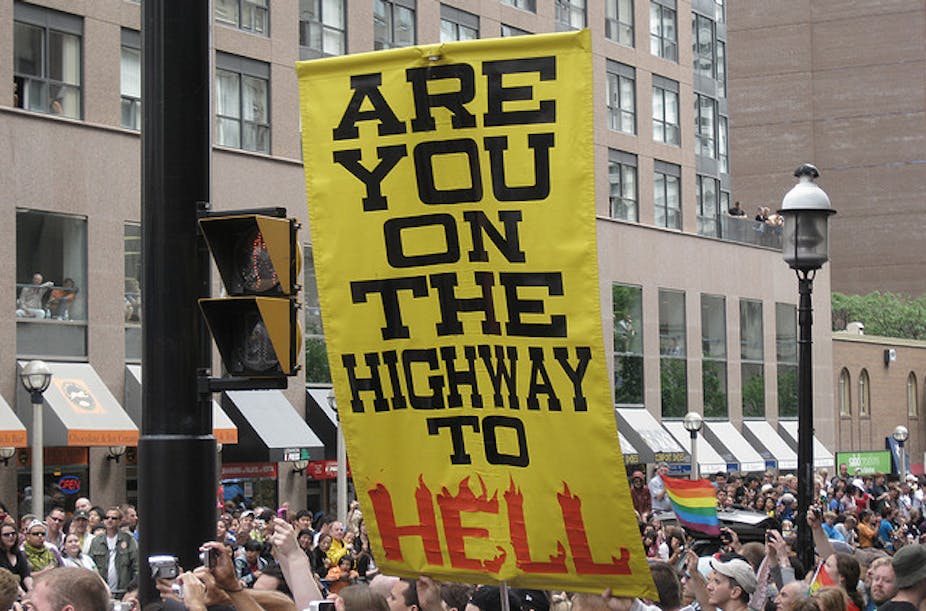The promotion of religious freedom is ubiquitous, and there is great excitement in the air all round the world as governments rush to feature it prominently in their foreign affairs portfolios. The US has been advocating religious freedom for decades, renewing its efforts with the passage of the International Religious Freedom Act (IRFA) in 1998. Though most Americans have never heard of IRFA, most would probably support their country’s advocacy for religious freedom. Many, including the National Association of Evangelicals, would affirm a divine origin of religious rights. But it is not only evangelicals: religious freedom advocacy commands a broad constituency that reaches across the political spectrum.
Nor is it just an American pet issue. Canada, many European states, the UK, and the EU are institutionalising external religious freedom advocacy. Last year, Canadian prime minister Stephen Harper launched an Office of Religious Freedom, modelled on the US State Department office; the UK and the European Union promote religious freedom through the Foreign and Commonwealth Office (FCO) and the European External Action Service respectively. The FCO distributes a “toolkit” titled “Freedom of Religion or Belief: How the FCO Can Help Promote Respect for this Human Right.” Other European states are scrambling to get on the religious freedom bandwagon.
But what exactly do all these states mean by “religious freedom”? And are they for the same thing? Liberal internationalists, believers in the divine origin of rights, and almost everyone else all celebrate religious freedom as a fundamental human right, a legal standard, and a social fact that can be objectively measured and achieved. It is a matter of persuading governments to comply with a universal norm. States and societies are positioned on a spectrum of progress, either climbing toward the achievement of religious freedom or slipping into persecution and violence caused – we are told – by religious hatred.
Whose freedom?
Not everyone is convinced. Over the past three years I have co-directed the Politics of Religious Freedom project, a collaborative effort to understand the historical and cultural assumptions underlying national and international projects to promote religious freedom. We have documented the complexities of the concept, and sought to unsettle the agreement in policy circles that religious freedom is a singular achievement, and that the problem is its incomplete realisation. We have asked whether a norm that is intended to secure human flourishing and peaceful co-existence could, in some circumstances, have the opposite effect.
Advocacy for religious freedom shapes religious and political contexts in ways that demand close scrutiny. For example, a regime of religious freedom describes and defines individuals and groups in sectarian terms rather than on the basis of other ties such as social class, neighbourhood bonds, or professional connections. Positioning religion as prior to other affiliations makes it an even stronger marker of difference. Religious identities and differences start to seem like the natural foundation of social order – as just the way things are.
This creates a dangerous self-fulfilling prophecy. Take the Arab Spring, which had little to do with religion or protecting religious freedom (if anything). At stake were calls for government accountability, human dignity, justice, economic opportunity, and an end to dictatorship. Yet in Washington, and now in many European policy circles, decision-makers often read these developments through the lens of Christian rights and freedoms. Hard and fast committment to a religious rights model generates attempts by Western governments to secure equality and justice abroad by recognising religious individuals and communities, and seeking to guarantee their religious freedom.
In Syria, the primacy of religion means that simply being Christian or Muslim, Sunni or Shia is freighted with public and political significance. Perceived lines of religious difference are more important than whether one is pro- or anti-regime, or pro- or anti-democracy. Privileging religion enables the regime to paint its opponents as “religious terrorists,” reinforcing its grip on power through sectarian divide-and-rule tactics. In Burma, it enables the regime to chalk up discrimination and violence against the Rohingya to “religious hatred”, and avoid owning up to their complicity in the Rohingyas’ systematic social, economic, and political exclusion.
Promoting “Christian rights”, “Hindu rights”, “Muslim rights,” and so on makes the boundaries between religions seem natural and given, rather than made and open to question. Religious difference therefore becomes more and more pronounced as a marker of identity and community. On an individual level, this logic turns religion into the principal marker of identity, the core way to know what you are, who you are, and how you fit in. On a societal level, it leads groups to frame social tensions in religious terms, making it harder to respond to the multiple causes of discrimination and violence.
Religious freedom is a complex and contested concept. It is time to consider the alternatives.

